For Dr. Bruce Kramer, who made me think
Copyright 2006 by Jane A. G. Kise
First Skyhorse Publishing edition 2014
All rights reserved. No part of this book may be reproduced in any manner without the express written consent of the publisher, except in the case of brief excerpts in critical reviews or articles. All inquiries should be addressed to Skyhorse Publishing, 307 West 36th Street, 11th Floor, New York, NY 10018.
Skyhorse Publishing books may be purchased in bulk at special discounts for sales promotion, corporate gifts, fund-raising, or educational purposes. Special editions can also be created to specifications. For details, contact the Special Sales Department, Skyhorse Publishing, 307 West 36th Street, 11th Floor, New York, NY 10018 or .
Skyhorse and Skyhorse Publishing are registered trademarks of Skyhorse Publishing, Inc., a Delaware corporation.
Visit our website at www.skyhorsepublishing.com.
10 9 8 7 6 5 4 3 2 1
Library of Congress Cataloging-in-Publication Data is available on file.
Cover design by Rose Storey
ISBN: 978-1-62914-665-2
Ebook ISBN: 978-1-62914-921-9
Printed in China
Contents
Acknowledgments
T he ideas Differentiation through Personality Types contains have been developed over several decades by teachers, principals, professors, psychologists, consultants, and others who, as they learned about personality type, began making sense of their own school experiences and envisioned how the concepts could help schools truly leave no child behind. I am especially indebted to the work of Elizabeth Murphy, Gordon Lawrence, and Len Tallevi, all of whom willingly shared ideas and provided feedback on my work with students.
Also, thank you to all of the teachers at Lake Harriet Community School in Minneapolis who wrestled with draft versions of various chapters in their professional learning communities and provided excellent feedback I used in shaping the final book.
Perhaps more important to classroom teachers reading these pages are the contributions of teachers who partnered with me in creating differentiated lessons and trying classroom strategies that honored the needs of all students. Their enthusiasm for more ideas, and quickly increasing confidence in their ability to differentiate, increased my confidence in the power of personality type as a tool for differentiation. Thanks to all of you!
The contributions of the following reviewers are gratefully acknowledged:
Lori L. Grossman
Instructional Coordinator
Professional Development Services
Houston Independent School District
Houston, TX
Kathy Grover
Assistant Superintendent for Curriculum and Instruction
Clever R-V School District
Clever, MO
Sharon L. Jeffery
National Board Certified Teacher
Plymouth Middle School
Plymouth, MA
Mark Bower
Director of Elementary Education and Staff Development
Hilton Central School District
Hilton, NY
Lois Brown Easton
Former Director of Professional Development
Eagle Rock School and Professional Development Center
Estes Park, CO
Mike Greenwood
District Teacher Leader
Windsor Public Schools
Windsor, CT
About the Author
 Jane A. G. Kise, EdD, is an educational consultant specializing in teambuilding, coaching, and school staff development. She is also the coauthor of nearly 20 books, including Differentiated Coaching: A Framework for Helping Teachers Change, Introduction to Type and Coaching, Using the MBTI Tool in Organizations, LifeKeys, and Work it Out. She holds an MBA in finance from the Carlson School of Management and a doctorate in Educational Leadership from the University of St. Thomas.
Jane A. G. Kise, EdD, is an educational consultant specializing in teambuilding, coaching, and school staff development. She is also the coauthor of nearly 20 books, including Differentiated Coaching: A Framework for Helping Teachers Change, Introduction to Type and Coaching, Using the MBTI Tool in Organizations, LifeKeys, and Work it Out. She holds an MBA in finance from the Carlson School of Management and a doctorate in Educational Leadership from the University of St. Thomas.
Kise has worked with diverse organizations, including Minneapolis Public Schools and various public and private schools, The Bush Foundation, Twin Cities Public Television, and numerous other institutions. She is a frequent workshop speaker and has presented at NSDC, World Futures, and APT International conferences. She has taught writing at the university level. She is a faculty member of the Center for Applications of Psychological Type and an executive board member of the Association for Psychological Type. In 2005, she won the Isabel Briggs Myers Award for Outstanding Research in the Field of Psychological Type.
Workshop descriptions, speaking schedule, and contact information are available at .
Type Terms Bookmark
Type Terms Bookmark
| Extraversion ( E ) | Gaining energy through action and interaction, the outside world |
| Introversion ( I ) | Gaining energy through reflection and solitude, the inner world |
Keyword: Energy
| Sensing (S) | First paying attention to what is, to information you can gather through your five sensesthe facts |
| INtuition (N)* | First paying attention to what could be, to hunches, connections or imaginationa sixth sense |
Keyword: Information
| Thinking (T) | Making decisions through objective, logical principles |
| Feeling (F) | Making decisions by considering the impact of each alternative on the people involved |
Keyword: Decisions
| Judging ( J ): | A preference for planning their work and working their plan |
| Perceiving ( P ): | A preference for staying open to the moment |
Keyword: Approach to Life
*Note that the I was used for Introversion, so the N stands for I N tuition.
Copyright 2007 by Jane A. G. Kise. All rights reserved. Reprinted from Differentiation through Personality Type: A Framework for Instruction, Assessment, and Classroom Management , by Jane A. G. Kise. Thousand Oaks, CA: Corwin Press, www.corwinpress.com. Reproduction authorized only for the local school site or nonprofit organization that has purchased this book.
Introduction
Before you read on...
How do you define differentiation?
What makes differentiation difficult?
Bring to mind the names of two or three students that you think would benefit from differentiated instruction.
A sk teachers to define differentiation and youll get a wide variety of answers. For a moment, lets look at a definition:
Differentiation: tailoring instruction to meet individual learners needs, styles, and interests.
Thats the problem right there. In one sentence, teachers are being asked to differentiate for student needs, multiple intelligences, learning styles, interests, cultural background, abilities, and more. You can read books and attend workshops on how to differentiate for each one of these factors.
Its overwhelming, isnt it?
But what if you had one framework that helped you organize all of these facets of differentiation into one model for planning lessons? What if it gave all students access to rigorous thinking tasks? What if that same model helped you understand your own strengths as a teacher and those of your colleagues as well?
WHY READ THIS BOOK?
Thats what this book is about, helping you organize all the above ways to look at students through one framework so that you can
Recognize genuine differences in what individual students need to both love school and learn.

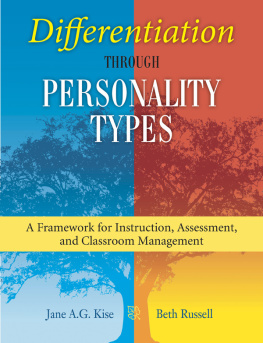
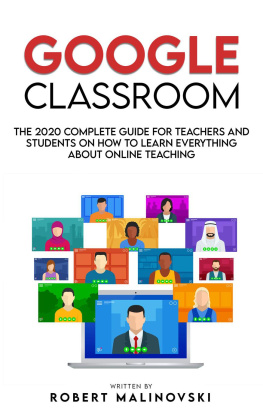

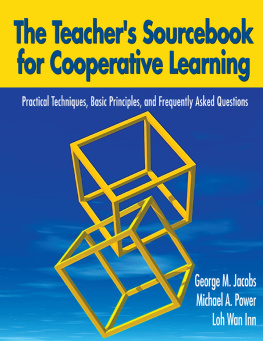
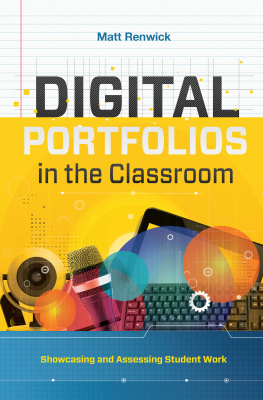
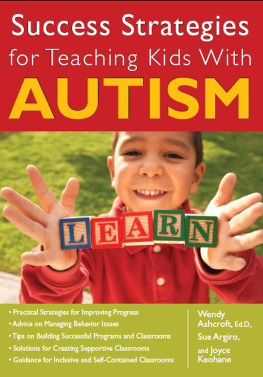
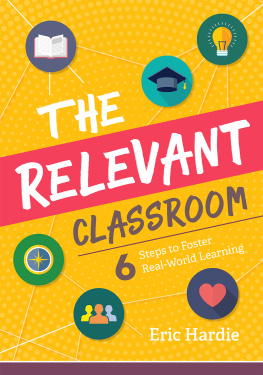
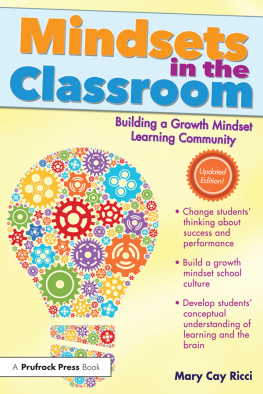
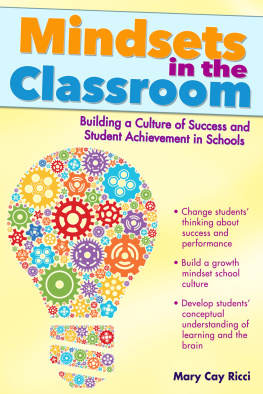
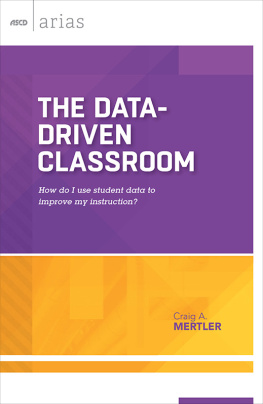


 Jane A. G. Kise, EdD, is an educational consultant specializing in teambuilding, coaching, and school staff development. She is also the coauthor of nearly 20 books, including Differentiated Coaching: A Framework for Helping Teachers Change, Introduction to Type and Coaching, Using the MBTI Tool in Organizations, LifeKeys, and Work it Out. She holds an MBA in finance from the Carlson School of Management and a doctorate in Educational Leadership from the University of St. Thomas.
Jane A. G. Kise, EdD, is an educational consultant specializing in teambuilding, coaching, and school staff development. She is also the coauthor of nearly 20 books, including Differentiated Coaching: A Framework for Helping Teachers Change, Introduction to Type and Coaching, Using the MBTI Tool in Organizations, LifeKeys, and Work it Out. She holds an MBA in finance from the Carlson School of Management and a doctorate in Educational Leadership from the University of St. Thomas.